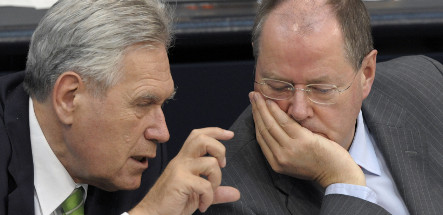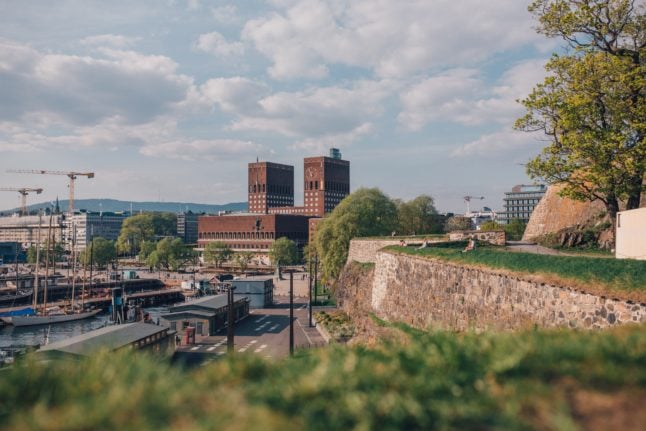“This year, economic output is expected to fall by between two and 2.5 percent,” Glos said in an interview with the Welt am Sonntag released in advance of publication.
Germany entered a recession in the third quarter with two successive three-month periods of shrinking economic output.
Preliminary official figures on Wednesday showed that the slowdown accelerated sharply in the final part of the year, contracting by between 1.5 and two percent—the sharpest fall in two decades.
The new figures represent a huge downward revision to the government’s previous estimate of some growth, albeit minimal, of 0.2 percent.
The world’s largest exporter has been hit hard by a slump in global demand as the world economy nosedives amid the worst financial crisis since the 1930s.
In a bid to stave off the slowdown, Chancellor Angela Merkel’s government this week agreed a stimulus package worth €50 billion ($66 billion) to give the economy a much-needed boost.
The main thrust of the new package is a huge increase in spending on roads, railways, hospitals and schools.
Other elements include cuts in tax and social security contributions, as well as incentives for consumers to buy new “greener” cars to boost Germany’s ailing auto sector.
Merkel also plans to set up a €100 billion fund to help out firms struggling to secure sufficient credit to keep going – or at least loans without painful interest rates – from hard-up banks still reluctant to dole out cash despite Berlin’s €480 billion banking package rushed through late last year.
But her efforts will also lead to a huge increase in Germany’s public deficit to the point that it is set to breach EU rules in 2010, Finance Minister Peer Steinbrück told the Financial Times Deutschland this week.
Recent data have made it clear that Europe’s biggest economy is going south, with industrial orders and output falling off a cliff and unemployment to go over three million.
Figures from the German industrial federation on Wednesday showed foreign orders slumping by almost 30 percent in November. Deutsche Bank, meanwhile, the country’s biggest bank, unveiled a loss of almost €5 billion for the fourth quarter.
Commerzbank, the second largest lender, is set to be part nationalised with Berlin taking a 25 percent plus one share stake in return for €10 billion in desperately needed fresh capital.
And the government could buy one third or more of troubled property lender Hypo Real Estate (HRE), Germany’s biggest credit crunch casualty, a lawmaker from Merkel’s CDU party told AFP on Friday.
A total of €50 billion in cash and another 30 billion in loan guarantees already provided to HRE have not been enough to get its back on its feet.



 Please whitelist us to continue reading.
Please whitelist us to continue reading.